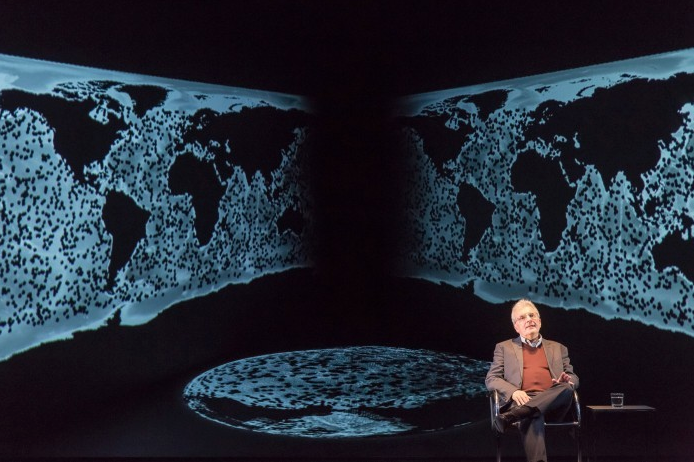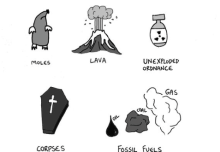2071 – A play about climate change
Climate change often gets lost in a mire of controversy and is the gnawing unsolved issue of communicators everywhere. This year, a brave new approach was taken in the form of a stage performance (not sure the term play is correct). The writer Duncan Macmillan talks with one of the world’s most influential Climate Scientists Chris Rapley and this is the creation. We have enlisted the eyes and ears of Cyrielle Garson, a PhD student in Contemporary British Theatre at the University of Avignon, France, here is her take on this new form of climate change communication.
2071 is a new lecture-performance directed by Katie Michell that aims to do just that. It focuses on the often-overlooked 2015 Paris climate summit, while offering a sober but optimistic account of future possibilities of dealing with climate change.
It’s easy to see 2071 as just a reproduction of Michell’s Ten Billion, a similar 75-minute performance that impressed at the Royal Court Theatre two years ago. Granted it uses the same formula of a lecture, written and delivered by a scientist, that challenges our personal responsibility towards global warming where theatricality is reduced to a bare minimum. However, this time a playwright was involved in the process and perhaps, because of this, the audience was left feeling empowered.
Unlike Stephen Emmott in Ten Billion, a computational scientist who strongly believed we ‘could not technologise our way out of it’, 2071’s Professor Chris Rapley believes ‘hope lies with the engineers’. He believes that change is not beyond our grasp and we still have the ability to avoid the impending global catastrophe.
A positive message that gives the public a sense of agency is emblematic of Royal Court artistic director Vicky Featherstone’s desire to tackle more provocative and controversial contemporary issues in the 2014-2015 season: ‘the time for apathy is over, the writers want to see and make change, to ask questions’.
The show is conceived as a riposte to all climate-change deniers. In a propaganda-esque tone, cold and dispassionate calculation is used to demonstrate that global warming is a by-product of people. This scientific rationality is juxtaposed with personal touches – 2071 is the year climate scientist Chris Rapley’s oldest grandchild Josephine will have reached the age he is now.
The problem with 2071 is that although theatre is an effective way to transmit complex and complicated information, it lacks the capacity to move and stir an audience, which may be seen as counter-productive..
Despite a mixed reception, it’s ultimately worth seeing. 2071 represents another praiseworthy attempt to cope with an unusually demanding and important issue in the theatre. The play will reach Germany for six performances from December 2014 to February 2015 at the Deutsches Schauspielhaus Hamburg. 2071 returns to the Royal Court for three more shows in January, a clear sign that environmental issues are becoming the concern of a growing number of theatre-goers as well as members of the general public.










